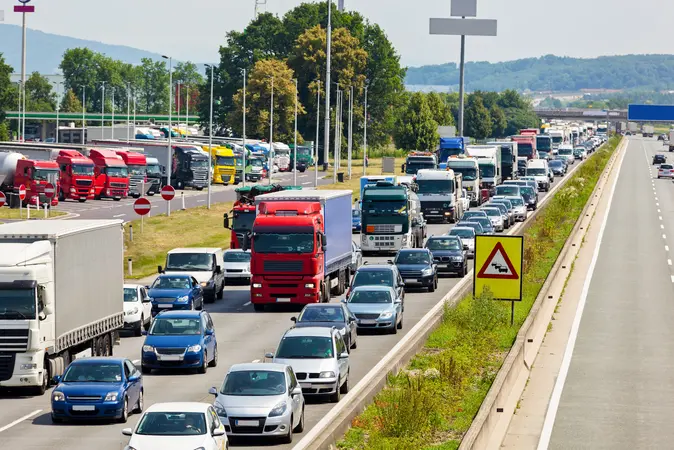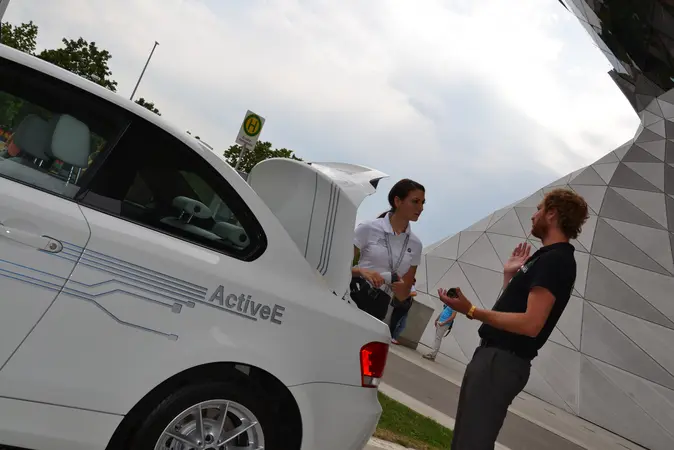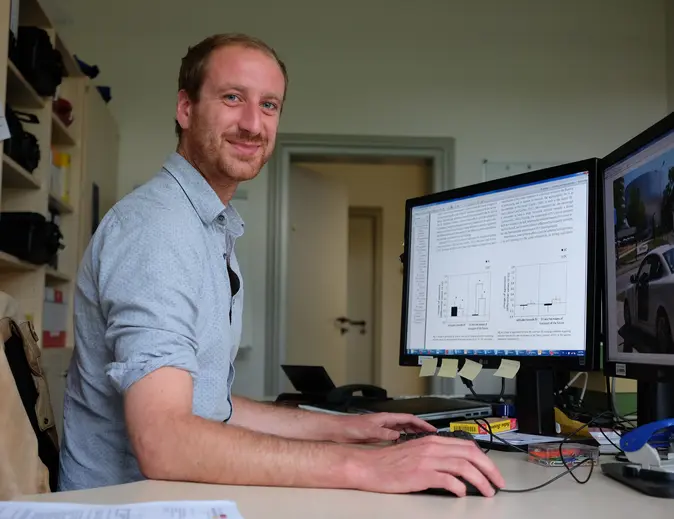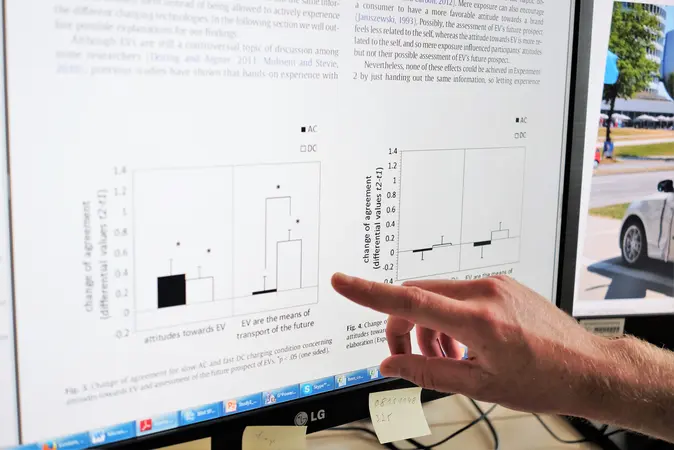The Bamberg psychologist conducted their study at Munich’s BMW Welt.
Psychologist Fabian Gebauer is in charge of the study.
Fist-hand experience makes all the difference – test subjects who used technology themselves had fewer reservations.
Does Faster Charging Technology Lead to Increased Acceptance of Electric Cars?
One million electric cars: that’s the number that German Chancellor Angela Merkel would like to have on the nation’s roads by 2020, but so far there are far fewer. With this in mind, psychologists at the University of Bamberg have conducted a study which addresses drivers’ reservations and how these can be overcome.
The beginning of summer holidays always seems to mean packed German motorways. The traffic jams on the Autobahn heading south can stretch for kilometres and can cast a gloomy shadow on the otherwise joyful anticipation of long-awaited holiday trips. With thickening exhaust hanging over the sea of bumper to bumper traffic, more than a few people find themselves daydreaming about a more environmentally friendly means of travel.
Despite all this, Fabian Gebauer of the University of Bamberg’s Department of General Psychology says that most drivers continue to look to other alternatives ahead of electric cars. Now the doctoral candidate and the department chair Prof. Claus-Christian Carbon have devised a study that addresses the question of how to increase the acceptance of this modern technology. Working together with the Munich-based automotive manufacturer BMW, the two experimental psychologists and their team have focused their research on whether experience with new fast-charge technology can lead to a change in attitude among potential drivers of electric cars. Their study confirms that first-hand experience with electromobility can in fact reduce potential reservations.
According to Gebauer, who conducted the study in Bamberg and Munich, bias against electric cars is still quite common. “The main concerns that many people have are that charging electric cars takes a long time and that the drivable distances are therefore quite limited. This is what’s referred to as ‘range anxiety’”, he explains. According to data compiled by the Federal Motor Transport Authority, only around 19,000 Germans were driving electric cars in 2015. This means that the number of electric vehicles on German streets is still far below Chancellor Angela Merkel’s goal of one million by 2020.
Experimenting with modern charging technology
In cooperation with the famed automotive manufacturer’s BMW Welt interactive museum in Munich, the Bamberg scholars conducted an experiment to get to the bottom of these two biases. First, they invited 62 BMW Welt visitors to use a nearby fast charging station to charge an electric car with a 28 kilowatt hour battery and a driving range of 160 km.
Half of the subjects charged the car’s battery using one of the new DC fast chargers, a technology that only very recently entered the market. These new charging stations use direct current and have an output of up to 50 kilowatts, meaning that charging an electric car only takes about 30 minutes.
The other participants were asked to charge the car with a conventional charging station using alternating current. Charging times for these older stations are considerably higher and it can even take up to eight hours for a battery to fully recharge. Both prior to and after charging, the researchers asked participants from both groups about their views on the future of electromobilty. The survey revealed a marked change of attitude among those subjects who used the newer, fast-charging technology: after experiencing it first-hand, they were more confident than before that electromobility would indeed prove to be a sustainable technology.
In addition to the field experiment, Gebauer and Carbon also surveyed a control group. 62 test subjects in Bamberg were also divided into two groups that then received the same basic information on the fast and slow charging technology, respectively. In this case however, subjects received the information only in written form and were also only shown photographs of the charging stations and the car. “So the only significant difference was that the subjects in the first group actually operated the chargers themselves and therefore had the opportunity to actively experience the modern charging technology,” explains Gebauer.
Personal experience dispels preconceptions
The positive changes in attitude following active experience with fast charging technology could not be observed in cases where only written information was available. Simply providing information on new charging technology is apparently not sufficient to effect a change of attitude. Professor Carbon sums up the findings thusly: “If a person has had first-hand experience charging an electric car using fast charging technology, typical reservations about electromobility are dispelled.”
Practical recommendations
These findings could be utilised in future attempts to convince people of the advantages of electromobility. “Electric car manufacturers should offer more test-driving opportunities in order to break down barriers and dispel prejudices concerning the new technology. And at the same time, they should continue to focus on innovation and development in this field,” recommends Gebauer.
Particularly where future ecological and environmental challenges are concerned, electric technology could represent a significant, viable alternative to conventional means. “Experiencing the sense that electric cars are an environmentally friendly mode of travel has the potential to influence a lot of drivers, and to change their minds,” says Gebauer. And based on his research, active experience could contribute significantly to expanding the market for electric cars, creating attractive prospects for automobile manufacturers, improving air quality, and even to approaching Chancellor Merkel’s ambitious goal.



